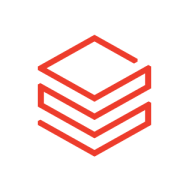

Find out in this report how the two Cloud Data Warehouse solutions compare in terms of features, pricing, service and support, easy of deployment, and ROI.
For a lot of different tasks, including machine learning, it is a nice solution.
When it comes to big data processing, I prefer Databricks over other solutions.
Whenever we reach out, they respond promptly.
As of now, we are raising issues and they are providing solutions without any problems.
I rate the technical support as fine because they have levels of technical support available, especially partners who get really good support from Databricks on new features.
The Snowflake Analytics documentation is excellent.
Recently we had a two-day session where the Snowflake Analytics team provided a demo on Cortex AI and its features.
The technical support for Snowflake Analytics is excellent based on what I have heard from others.
The sky's the limit with Databricks.
The patches have sometimes caused issues leading to our jobs being paused for about six hours.
Databricks is an easily scalable platform.
Storage is unlimited because they use S3 if it is AWS, so storage has no limit.
It supports both horizontal and vertical scaling effectively.
Maintaining security and data governance becomes easier with an entire data lake in place, and the scalability improves performance.
They release patches that sometimes break our code.
Although it is too early to definitively state the platform's stability, we have not encountered any issues so far.
Databricks is definitely a very stable product and reliable.
Snowflake Analytics has been stable and reliable in my experience.
Snowflake Analytics is stable, scoring around eight point five to nine out of ten.
The Power BI team raised tickets for both Power BI and Snowflake Analytics, and their responses were very good.
Adjusting features like worker nodes and node utilization during cluster creation could mitigate these failures.
We prefer using a small to mid-sized cluster for many jobs to keep costs low, but this sometimes doesn't support our operations properly.
We use MLflow for managing MLOps, however, further improvement would be beneficial, especially for large language models and related tools.
AIML-based SQL prompt and query generation could be an area for enhancement.
If it offered flexibility similar to Oracle and supported more heterogeneous data sources and database connectivity, it would be even better.
I would prefer Snowflake Analytics to improve their support response times, as sometimes the responses we receive are not very prompt and ticket assignments may not be timely.
It is not a cheap solution.
I believe that in terms of credits for Databricks, we're spending between £15,000 and £20,000 a month.
Snowflake charges per query, which amounts to a very minor cost, such as $0.015 per query.
Snowflake is better and cheaper than Redshift and other cloud warehousing systems.
Snowflake Analytics is quite economical.
Databricks' capability to process data in parallel enhances data processing speed.
The platform allows us to leverage cloud advantages effectively, enhancing our AI and ML projects.
The Unity Catalog is for data governance, and the Delta Lake is to build the lakehouse.
Running a considerable query on Microsoft SQL Server may take up to thirty minutes or an hour, while Snowflake executes the same query in less than three minutes.
Snowflake Analytics supports data security with a single sign-on feature and complies with framework regulations, which is highly beneficial.
It is a data offering where I can see data lineage, data governance, and data security.
| Product | Market Share (%) |
|---|---|
| Databricks | 9.2% |
| Snowflake Analytics | 1.5% |
| Other | 89.3% |


| Company Size | Count |
|---|---|
| Small Business | 25 |
| Midsize Enterprise | 12 |
| Large Enterprise | 56 |
| Company Size | Count |
|---|---|
| Small Business | 11 |
| Midsize Enterprise | 12 |
| Large Enterprise | 21 |
Databricks offers a scalable, versatile platform that integrates seamlessly with Spark and multiple languages, supporting data engineering, machine learning, and analytics in a unified environment.
Databricks stands out for its scalability, ease of use, and powerful integration with Spark, multiple languages, and leading cloud services like Azure and AWS. It provides tools such as the Notebook for collaboration, Delta Lake for efficient data management, and Unity Catalog for data governance. While enhancing data engineering and machine learning workflows, it faces challenges in visualization and third-party integration, with pricing and user interface navigation being common concerns. Despite needing improvements in connectivity and documentation, it remains popular for tasks like real-time processing and data pipeline management.
What features make Databricks unique?
What benefits can users expect from Databricks?
In the tech industry, Databricks empowers teams to perform comprehensive data analytics, enabling them to conduct extensive ETL operations, run predictive modeling, and prepare data for SparkML. In retail, it supports real-time data processing and batch streaming, aiding in better decision-making. Enterprises across sectors leverage its capabilities for creating secure APIs and managing data lakes effectively.
Conventional data platforms and big data solutions struggle to deliver on their fundamental purpose: to enable any user to work with any data, without limits on scale, performance or flexibility. Whether you’re a data analyst, data scientist, data engineer, or any other business or technology professional, you’ll get more from your data with Snowflake.
To achieve this, we built a new data platform from the ground up for the cloud. It’s designed with a patented new architecture to be the centerpiece for data pipelines, data warehousing, data lakes, data application development, and for building data exchanges to easily and securely share governed data. The result, A platform delivered as a service that’s powerful but simple to use.
Snowflake’s cloud data platform supports a multi-cloud strategy, including a cross-cloud approach to mix and match clouds as you see fit. Snowflake delivers advantages such as global data replication, which means you can move your data to any cloud in any region, without having to re-code your applications or learn new skills.
We monitor all Cloud Data Warehouse reviews to prevent fraudulent reviews and keep review quality high. We do not post reviews by company employees or direct competitors. We validate each review for authenticity via cross-reference with LinkedIn, and personal follow-up with the reviewer when necessary.